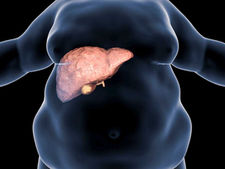The Effects of Obesity on Health and the Diseases It Causes
- Taner Dursun
- Feb 19, 2024
- 3 min read

What is Obesity?
Obesity is a condition characterized by excessive accumulation of fat in the body. Having more body fat than normal is a defining feature of obesity. Body mass index (BMI) is often used to determine obesity. BMI is a measurement obtained by dividing a person's weight by the square of his/her height. (Click to Measure)
Obesity can be caused by a combination of several factors. These can include genetic predisposition, eating habits, physical activity level, hormonal changes, environmental factors and lifestyle. Being overweight can lead to many health problems such as heart disease, type 2 diabetes, high blood pressure, sleep apnea, joint problems, some types of cancer and mental health problems.
Lifestyle changes such as regular physical activity, a balanced and healthy diet, proper portion control, stress management and proper sleep patterns are important to prevent or manage obesity. In some cases, doctors may recommend treatment options for obesity, such as diet programs, exercise programs, behavioral modification therapies and, when necessary, surgery.
Obesity is a condition that often requires a long-term struggle and treatment should be personalized, as each individual's needs and health status are different. In order to manage obesity and maintain a healthy lifestyle, you can determine the most appropriate treatment option for you by consulting with Yücelen Hospitals Physicians.
What are the Diseases Caused by Obesity?
Obesity is known to cause a number of health problems. Excess body fat can have negative effects on many organs and systems.
Here are some of the diseases that obesity causes or increases the risk of:
Heart Disease: Obesity can lead to problems such as high blood pressure, high cholesterol levels, heart disease and vascular disease. This can increase the risk of heart attack, heart failure and stroke.
Type 2 Diabetes: Obesity can increase insulin resistance in the body and increase the risk of type 2 diabetes. Fat tissue can reduce the effect of insulin, which can make it harder to control blood sugar.
Breathing Problems: Obesity can lead to breathing problems such as sleep apnea. This is a condition that pauses or reduces breathing during sleep and can negatively affect sleep patterns and overall health.
Joint Problems: Joint diseases such as joint pain and osteoarthritis are associated with obesity. Excess weight can increase the load on the joints, which can lead to joint pain and restricted movement.
Mental Health Problems: Obesity can increase the risk of mental health problems such as depression, anxiety and low self-esteem. Factors such as how it is perceived in society, social interactions and body image can contribute to this.
Some Types of Cancer: Obesity can increase the risk of breast cancer, colon cancer, kidney cancer and some other types of cancer.
These are just some of the health problems that obesity can cause. Because every individual is different, the health problems affected by obesity can vary from person to person. It is important to collaborate with health professionals to manage obesity and reduce health risks. Healthy eating, regular exercise and lifestyle changes can play an important role in combating obesity. In order to manage obesity and maintain a healthy lifestyle, you can get information about the most suitable treatment options such as diet, internal intervention, surgical intervention, gastric botox, gastric balloon, gastric bypass, gastric sleeve surgery by contacting Yücelen Hospitals physicians.


-04.png)
-06.png)
-05.png)
-08.png)
-07.png)






















